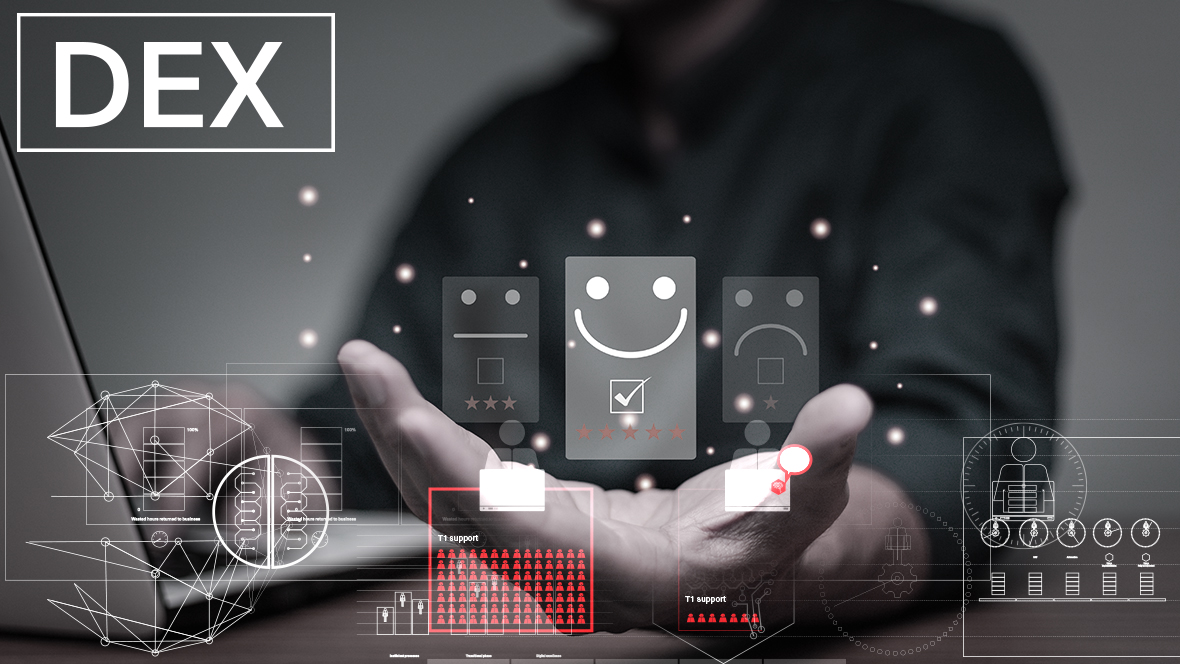What is Digital Employee Experience (DEX)?
Digital Employee Experience (DEX) refers to the overall interaction and engagement that employees have with the digital tools, technologies, and systems they use within their work environment. It encompasses all digital touchpoints and interactions that employees have throughout their daily tasks and responsibilities.

DEX focuses on creating a positive, productive, and user-friendly digital environment for employees, like how User Experience (UX) focuses on creating positive experiences for customers using digital products.
Key components of Digital Employee Experience include:
- Digital Tools and Platforms: This includes the software applications, platforms, and systems that employees use to perform their tasks, collaborate with colleagues, and manage their work.
- User Interface (UI) and Interaction Design: The design of user interfaces and interactions directly impacts how employees engage with digital tools. A well-designed UI enhances usability, efficiency, and satisfaction.
- Ease of Use: DEX emphasizes simplicity and ease of use. Complex or confusing interfaces can lead to frustration and reduced productivity.
- Personalization: Tailoring digital experiences to individual employee roles and preferences can improve engagement and effectiveness.
- Performance and Speed: Slow or inefficient digital tools can hinder productivity and lead to dissatisfaction. Fast and responsive tools contribute to a positive DEX.
- Training and Onboarding: Effective onboarding and training programs ensure that employees are confident and competent when using digital tools.
- Support and Assistance: Providing accessible help and support resources, such as FAQs, chatbots, and in-app assistance, contributes to a smoother experience.
- Integration and Compatibility: Seamless integration between different digital tools and systems helps employees work more efficiently without unnecessary disruptions.
- Feedback and Continuous Improvement: Gathering feedback from employees about their experiences with digital tools can inform improvements and updates.
- Mobile and Remote Accessibility: As remote work and mobile usage become more prevalent, DEX should extend to mobile devices and remote work scenarios.
A positive Digital Employee Experience is crucial for several reasons:
- Productivity: An intuitive and efficient digital environment can boost employee productivity and minimize frustrations.
- Employee Engagement: A user-friendly experience can contribute to higher levels of engagement and satisfaction.
- Retention and Recruitment: A positive DEX can attract and retain talent, as employees prefer working in environments with modern and effective digital tools.
- Innovation: Employees are more likely to embrace and explore innovative technologies when the digital experience is positive.
Organizations that prioritize Digital Employee Experience are better positioned to create a work environment that supports their employees’ needs, enhances productivity, and contributes to overall business success.
